My Favourite Things (MFT): July 3
The 2nd installment (and the last free to all) of a new weekly feature: A round-up of creations and experiences I want to celebrate and share with you. Amanda Palmer, Paul Simon, Denzil Meyrick + more
Hey fam:
Here’s the second installment of MFT, which is free this week to all subscribers, paid or otherwise. Next week, these weekly annotated listicals of creations/experiences I want to celebrate and share simply because they are worthy of appreciation, will become a feature available exclusively to paid subscribers.
To wit: For the month of July 2023, I am offering 15 percent discounts on all annual paid subscriptions, including the PATRON level, which comes with one hour of creative consultation with me via phone or Zoom.
OK. Back to our regularly scheduled programming….
Amanda Palmer. Full stop.
I don’t know Amanda Palmer, but I feel like I do.
We’ve never met in person, but we’ve “met” scores of time online through her tweets and posts and blogs and videos, through her livestreams and music and this 10-year-old TED talk.
I don’t recall when Amanda and I first “met.” I think it was sometime between the TED talk and the beginning of COVID, when I was sequestered in our bunker-by-the-sea in Laguna Beach and she was stranded (in the end, beautifully, as it turns out) about 9,000 miles from home in New Zealand with her young son, Ash. But it might actually have been years earlier, as I have a vague memory of seeing her play her ukulele at an Occupy Wall Street protest in New York that I covered for Sojourners.
Sometime during the first years of COVID, I believe, I became a patron of Amanda’s on her Patreon and have been watching and listening and learning from, rooting for and inspired by and such a rabid fan of her since.
Amanda is an iconoclast. She is a musician. She is a writer. She is a performance artist. She is a mother. She is an activist. She is what Little Edie would have called a “staunch woman.” She is legion.
Amanda is honest. She is vulnerable. She is fierce. She is unpredictable. She is human. She is open. She makes mistakes. She isn’t afraid of making mistakes. She owns her mistakes. She learns from her mistakes. She makes beauty out of ugly things.
Amanda is brave. And she is kind.
Amanda makes me want to be braver and kinder. As a creator. As a writer. As a mother. As a friend. As a partner. As a risk-taker. As a nurturer. As a woman in the second-third of life. As an ally. As a neighbor. As a stranger. As a human.
A couple months back, Amanda hosted a live-streamed benefit called NINJATED in Vancouver (where she was attending the TED conference thing) that was part-variety-show part-circus in the loveliest of ways. All the money raised went to the Greater Vancouver Food Bank. There were not one but two totally fabulous Balkan brass bands (no, really) and a ton of other musical and spoken-word performers. It went on for several hours. I was mesmerized and delighted. And it wasn’t the first time.
At Christmastime last year, Amanda invited her followers to join an online evening of music and merriment where she was one of man performers called The Sounding Joy from the Levon Helm Studios in Woodstock, N.Y., where she and Ash now live. That, too, was hours of music and mayhem benefitting others (The Washbourne House, a shelter for women and children survivors of domestic violence.)
But back to NINJATED… toward the end of the evening, Amanda played her song “Ukulele Anthem” and then auctioned off a ukulele. When the bids rose above a few hundred bucks (it eventually went for more than a grand), I gave up the idea of trying to bid by proxy. And I promptly went online and bought a ukulele. I’m trying to teach myself how to play. So far, I’m terrible but it’s a thing of wonder and gives me joy.
That, if I’m not mistaken, is the point, right Amanda?
Amanda is also helping me to trust my instincts (again and more deeply), and also to trust that when I do, what I create will find its way to those who need it.
In that TED talk, Amanda speaks of “random closeness” as a performer, of “falling into the audience and trusting one another.”
Here in this space, that is my aim. Closeness, random and otherwise. And trust.
From time to time, that may involve asking questions or for help with something. I did that earlier today. It made me uncomfortable. But I did it.
“Becoming the hat,” as Amanda puts it, is, for me and perhaps for most of us, very much a work in progress. I have to believe that therein lies both freedom and real community.
Below are places you can find Amanda. I hope you do.
Amanda’s Patreon: Amanda Palmer
Amanda’s Substack: Ask Amanda
Amanda’s Website: AmandaPalmer.net
Amanda’s Band: Dresden Dolls
Thank you, Amanda. For teaching me how to ask and for all the things.
Here’s my ukulele:
Paul Simon’s Seven Psalms
The day Paul Simon’s something-of-a-surprise 33-minute, single track album Seven Psalms was released in mid-May, I went for a three-hour hike and listened to it on repeat, stopping occasionally to sit and watch, to weep, to write down a lyric and a few notes about what I might say when I eventually wrote about it, figuring I would at some length. But as the weeks past, I found myself at a loss for words. Or more precisely, that my words couldn’t do his justice.
Dip your hand in heaven's waters
God's imagination
Dip your hand in heaven's watersAll of life's abundance in a
Drop of condensation
Dip your hand in heaven's waters
The thing is, nothing I could say about this magnificent work would do anything to add to it. What Simon has done is a complete thought as well as the continuation of a conversation he’s been having with the Universe, with God (defined variously over the years), and with the rest of us that began more than 60 years ago.
It’s not an album about the end of life, Simon’s or anyone else’s. And it’s not a swan song. It is the manifestation of the singer-songwriter’s more than 80 years of listening carefully to the world and to his dreams, in this case literally.
A dozen years ago, when Simon’s album So Beautiful or So What came out, I wrote an essay about it in which I extolled the spiritual eloquence of the album, written by a man who had for years claimed no use for religion or religiosity. Simon saw the essay and one day, out of the blue, called me. He wanted to talk about spiritual things. So we did and we have a few times over the years, including when he released his album Stranger to Stranger in 2016.
In the intervening years, it would seem our journeys have moved Simon and I closer together spiritually speaking. While our trajectory has differed (at least in the past) our destination is, I believe, the same.
I’m certain of much less now than I was when we first spoke about God and faith, belief and spirituality in 2011. And I’m good with that. So good, in fact, I believe with all my heart that not knowing is the point.
I suspect Simon, who’s got three decades of life on me, knew that when we first spoke. It’s taken me another decade to get it. But in listening to Seven Psalms, I’m pretty sure we’re both here, in the grace and mystery. Or maybe not. (But I have a hunch we are.) It’s something like what the author of The Cloud of Unknowing describes, where “knowledge tends to breed conceit, but love builds; knowledge is full of labor, but love, full of rest.”
The sacred harp
That David played to make his songs of praise
We long to hear those strings
That set his heart ablazeThe ringing strings
The thought that God turns music into bliss. . .
We left the pick-up in the driveway
The moon appeared as amber in the mist
The ineffability is the thing. The special sauce. Simon speaks about the ineffability of music in this wonderful interview with CBS Sunday Morning:
CBS has released an extended version of the interview that’s definitely worth the time.
Today, if someone asked me what I believe, I might simply hand them a copy of Seven Psalms and say, “This.”
Please, listen for yourself.
Here’s a link to listen to the album in its entirety for free on YouTube.
The seeds we gather
From the gardener's glove
Live forever
Nothing dies of too much love
Buster Williams: Bass to Infinity
Tricycle, the quarterly Buddhist magazine that has been in print since 1991, also has an excellent website, Tricycle.org, with some great multimedia storytelling in the religion-and-culture space.
For the last year or so, I’ve been a fan of the Tricycle Film Club, which is included in a digital subscription and features new spiritually-themed films each month, most of them documentaries. It’s where I’ve stumbled across gems such as Descending the Mountain and Mission Joy: Finding Happiness in Troubled Times about the friendship between the 14th Dalai Lama and the late Archbishop Desmond Tutu.
This week, I watched Buster Williams: Bass To Infinity, a documentary about the renown jazz bassist Williams, whose decades long career has found him playing alongside legends such as Sarah Vaughan, Nancy Wilson, Miles Davis, and Herbie Hancock, to name just a few.
For more than 50 years, Williams, who came up in the traditional Black church of his native Philadelphia, and his wife, Veronica, have been devout Nichiren Buddhists, and are members of the international Buddhist organization Soka Gakkai.
The film shows Buster and Veronica, junior-high-school sweethearts who have been married since 1965, chanting the mantra nam-myoho-renge-kyo in front of their home altar, and Buster describes how his practice has helped him spiritually, physically, and artistically for half a century.
The film is a fascinating meditation on creative inspiration in its many manifestations. My father was a massive jazz fan and I’ve always loved the genre, but I don’t think you need to be a jazz aficionado to appreciate the film or Williams’ work.
Give it a go.
Saint Coltrane: The Church Built On 'A Love Supreme'
“I'd like to point out to people the divine in a musical language that transcends words. I want to speak to their souls.”
— John Coltrane
Unsurprisingly, John Coltrane came up more than once in the Buster Williams documentary and it reminded me of the above terrific NPR short documentary film.
“The Holy Ghost fell in a jazz club in 1965 and our lives were changed forever,” the Most Rev. Mother Marina King says in Saint Coltrane.
How that encounter with the holy in a place some folks might argue the holy isn’t supposed to be found unfolds in the lives of King and her family, as well as in the sacred community of St. John Coltrane African Orthodox Church in San Francisco, has a few unexpected twists and turns. It’s a compelling story.
That encountering the sacred in unlikely places is one of my favourite experiences. I’ve not visited the Coltrane church but I hope to before we leave California.
Mark Doox Iconography
The NPR documentary about St. John Coltrane features several icons by the contemporary artist and iconographer Mark Doox (formerly “Dukes”). I’ve long been a fan of his work. A color print of one of his Coltrane icons has been fastened to our refrigerator door with magnets for a decade and we’re blessed to own a wooden print of his powerful Our Lady, Mother of Ferguson and All Those Killed by Gun Violence (aka “Our Lady of Ferguson”) that hangs on our living room wall near our iconostasis. Doox created the Ferguson icon in 2015 as a commission for the Rev. Mark Francisco Bozzuti-Jones, an Episcopal priest from Trinity Church Wall Street in New York City.
Doox’s work is as provocative as it is exquisite. Below are two of his Coltrane icons from a collection of several more that are available for purchase HERE.


Around the World in 80 Faiths
Speaking of unusual spiritual communities, I recently also stumbled onto a heretofore unbeknownst to me BBC series called Around the World in 80 Faiths (renamed Rituals in its U.S. iteration), that’s now available via the BBC Select and BritBox subscriptions on Amazon Prime.
The series premiered in 2009 and is presented by the Rev. Peter Owen-Jones, an Anglican priest who took a yearlong sabbatical from his duties as a local vicar to travel the world and experience 80 different faith traditions. Many of the traditions were known to me, but many others were new discoveries, which I thought would be a hard thing to do for a religion nerd such as myself.
I’m ashamed to say I’d not heard of the Alevis, who number between 5 and 10 million and make up approximately 10 percent of Turkey’s population. I knew nothing of the Bishnoi of Rajastan or the Summum Pyramid (and its followers) in Utah. The latter is part of the episode about North America, which begins with a snake-handling church in the deep South and ends with Burning Man. It’s an interesting outsider’s perspective on the “most religious country in the world.”
Owen-Jones has a silly haircut and a sometimes slightly off-putting swagger, but his open posture toward the world and up-for-anything curiosity makes up for more superficial shortcomings. These episodes were filmed in the days long before white privilege and centering whiteness were more commonly discussed in the public square, but the presenter appears to be at least somewhat aware of both. He’s says no to almost nothing but does have boundaries and isn’t afraid to display raw emotion, something of a novelty among the British travel documentaries of which I am so fond.
Definitely worth checking it out. (You also can find a few pirated episodes on YouTube if you nose around.)
Denzil Meyrick’s No Sweet Sorrow
A few weeks ago, Scottish novelist Denzil Meyrick released his latest page-turner, No Sweet Sorrow: A D.C.I. Daley Thriller, Book 11, which I consumed in audio form over several long hikes.
For the last couple of years, ever since my friend Christina introduced me to his work, Meyrick has been my guilty pleasure. His detective stories are set in and around the seaside communities of the Kintyre peninsula in Western Scotland. While somewhat formulaic, they are immensely gratifying in the same way all of the BBC detective/crime dramas such as Vera, Line of Duty, Shetland, Endeavor, Silent Witness, and so many others are.
What makes Meyrick’s stories truly sing, however, are the vocal talents of voice actor David Monteath who narrates all of the DCI Daley series novels. Monteath has a voice like none other. I would happily listen to him narrate the collected works of just about anyone I could imagine. He’s performed more than 300 titles to date, according to Audible.com.
I’m such a fan of Monteath’s that while I wait for Meyrick to write his next DCI Daley installment, I’ve followed the narrator to Mark Douglas-Home’s Sea Detective series, which is also quite enjoyable.
Either series would make for pretty perfect noir-ish beach reads.
Thompson & Scott’s “Noughty” De-Alcoholized Bubbly
Tomorrow is the Fourth of July and what will my tibble be while we watch the fireworks go off over the Pacific, you ask? My absolute favourite go-to non-alcoholic beverage is Thomson & Scott’s Noughty brand de-alcoholized sparking rosé.
Don’t ask me how they manage to remove the alcohol but leave the drink still tasting as close to actual sparkling rosé as they do, but they do.
Five stars. They also make a blanc de-alcoholized bubbly that’s pretty good, too.
You can order them from Thomson & Scott directly, but Amazon also carries them.
Freedom is fragile. So is democracy. May we act accordingly.
Let’s be as brave and kind as we can be, never forgetting that we haven’t met yet everyone we will love, and we haven’t met yet everyone who will love us.
Much love from me,

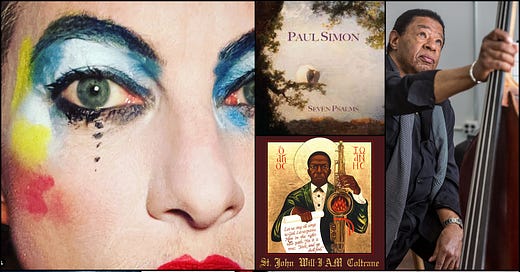



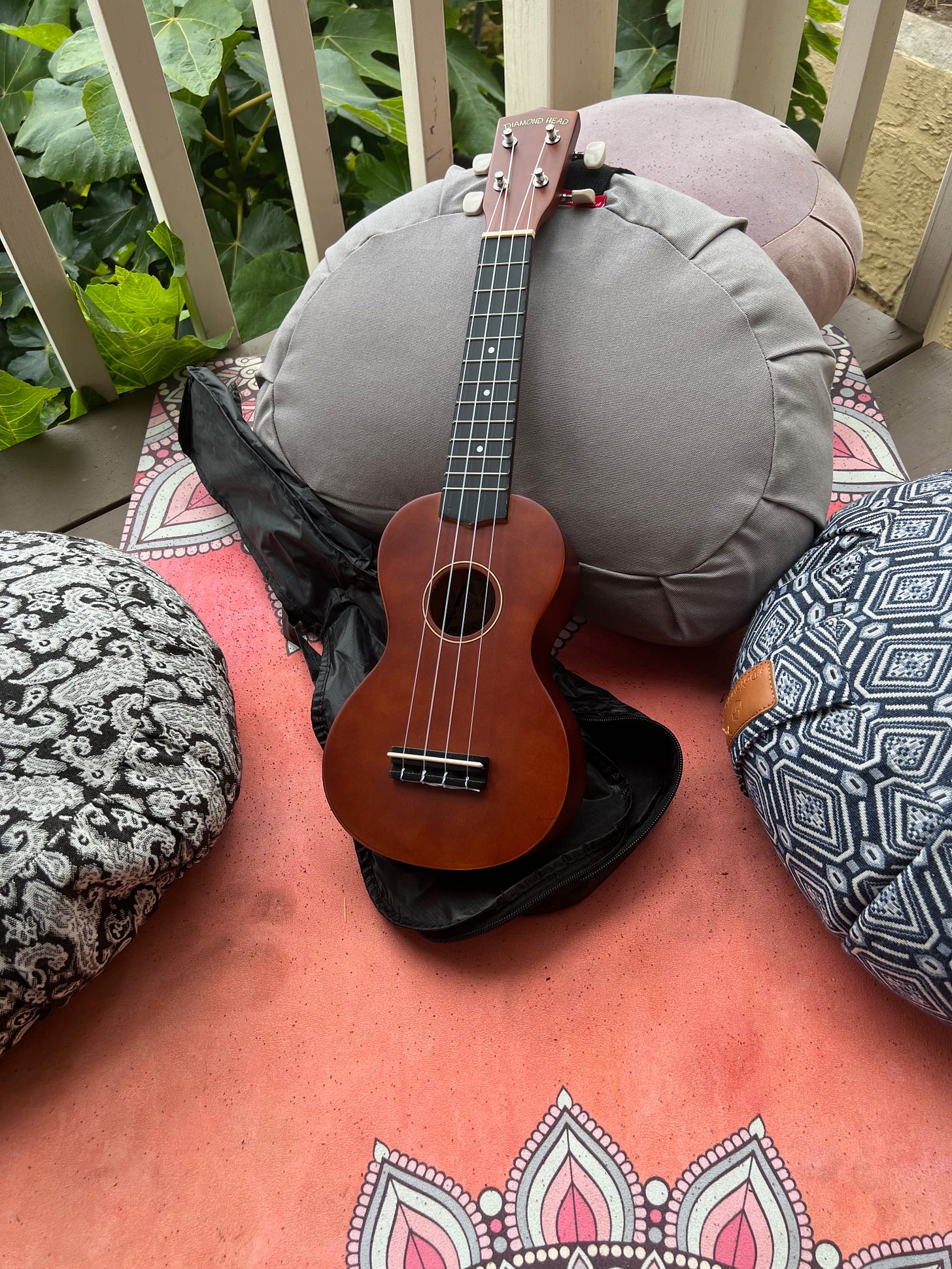
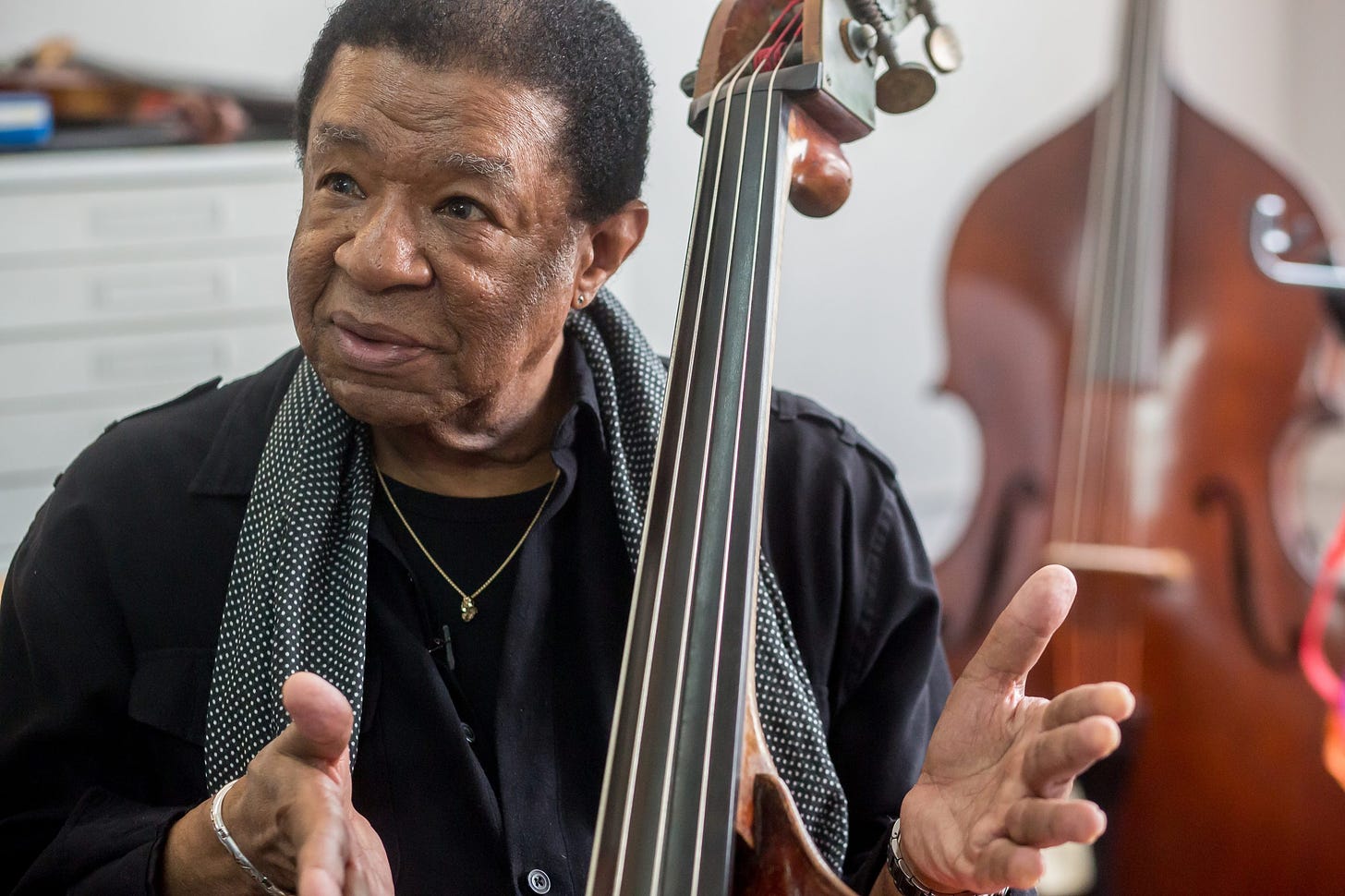

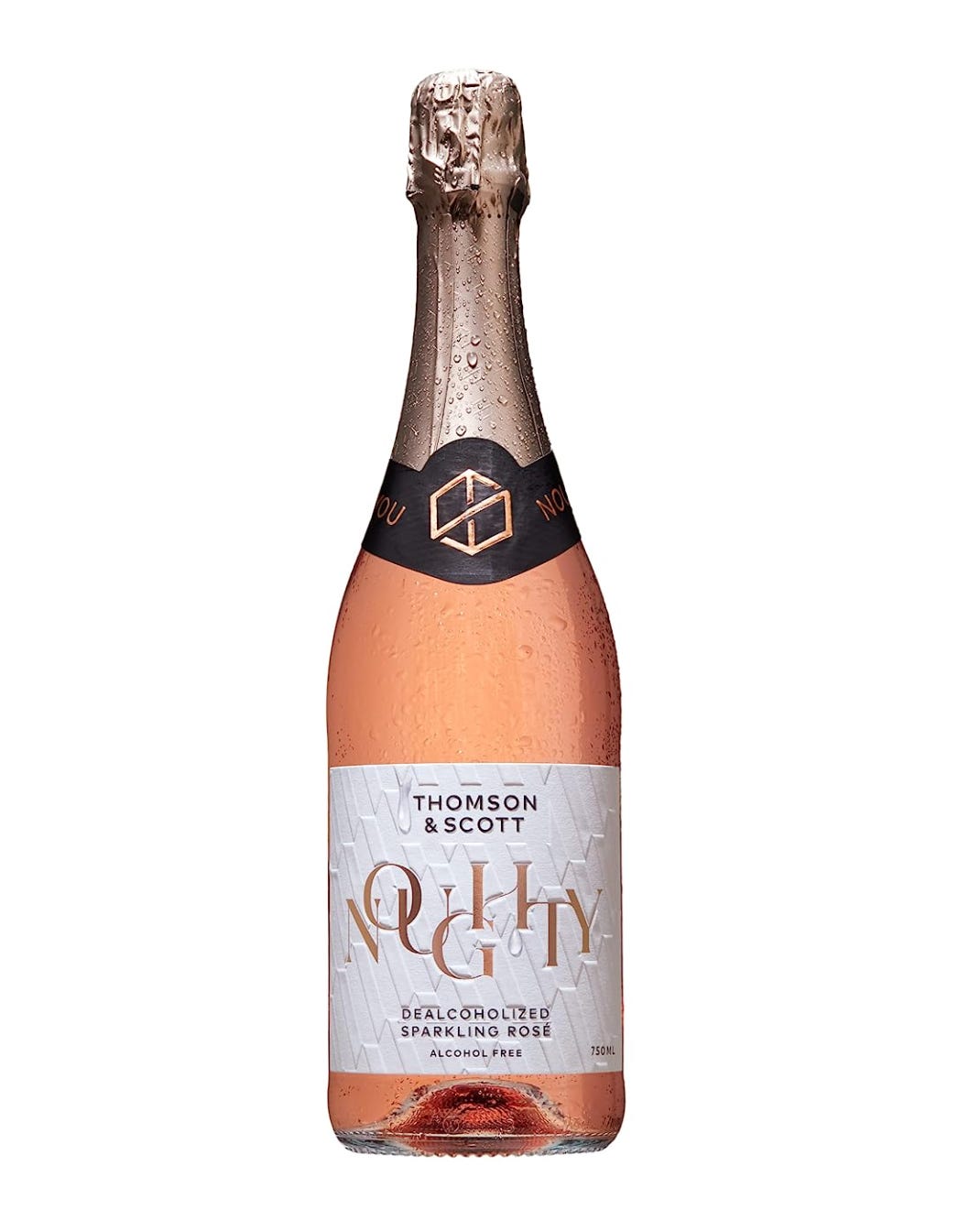
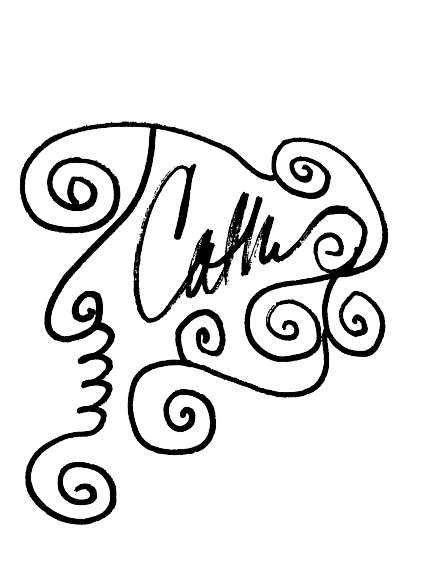
So much goodness here. An unexpected abundance. Thank you.
How long have you been playing the ukulele? I hear Ireland has some fantastic Ukulele festivals.